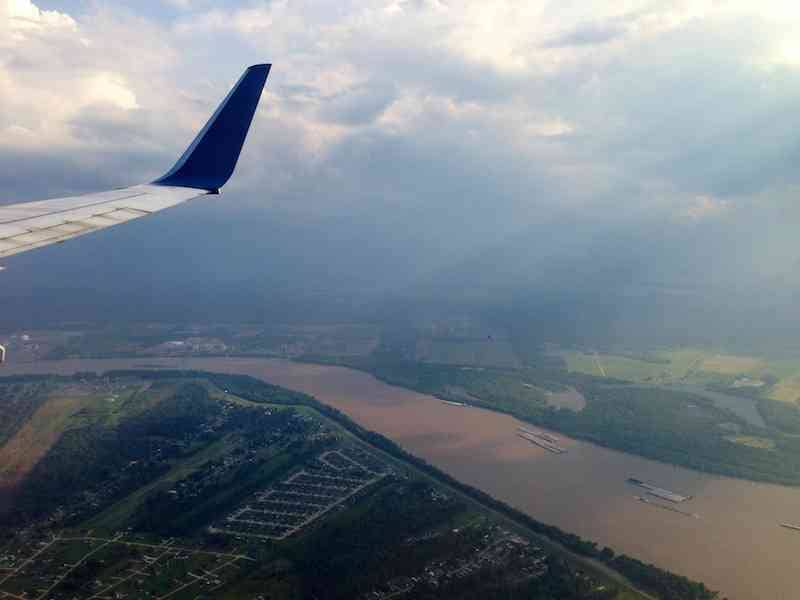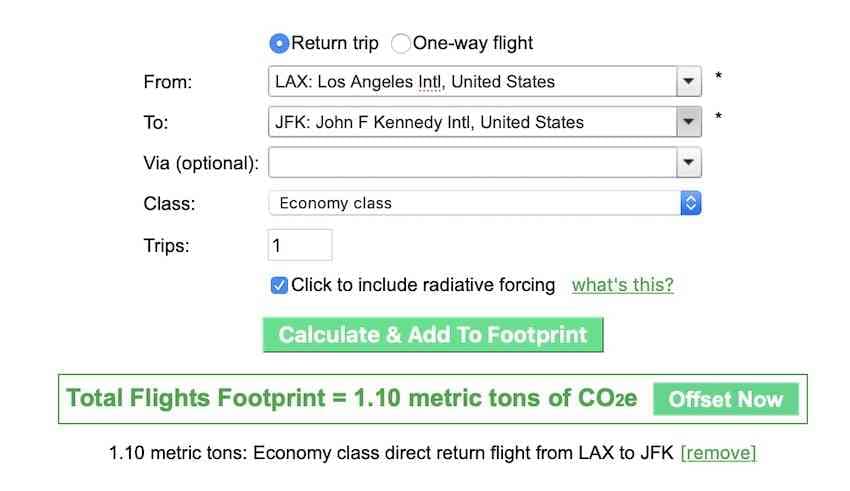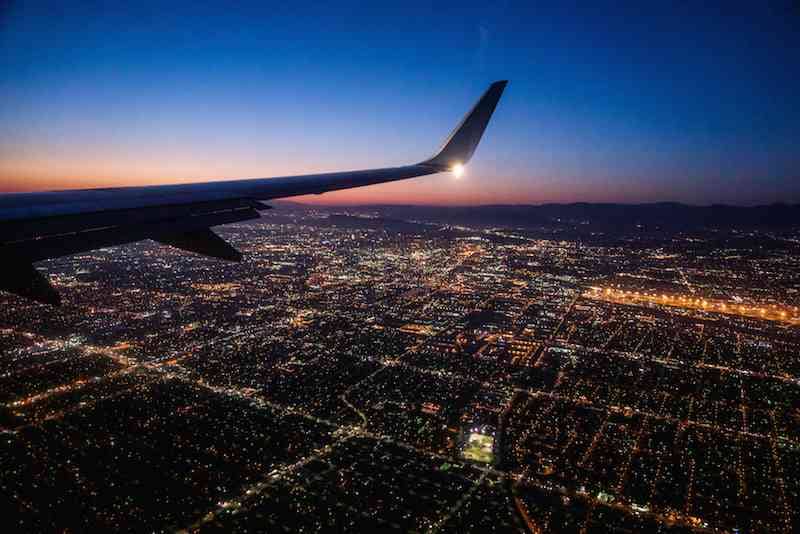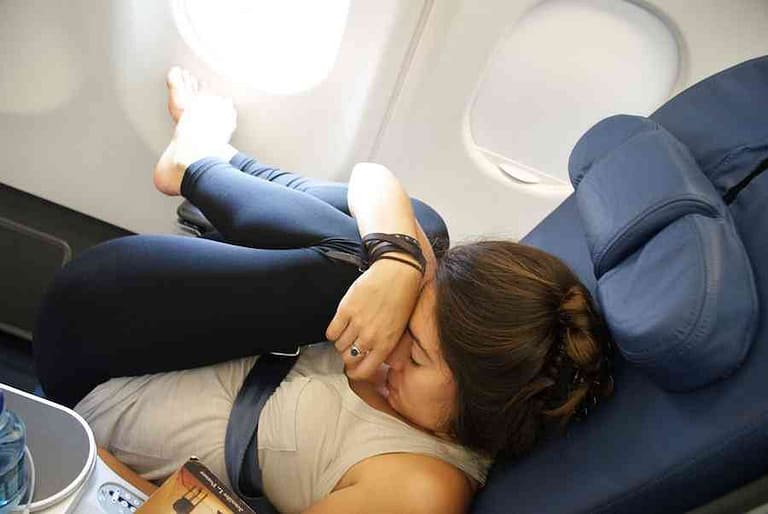‘Flight Shaming’: What Is It and How Is It Changing Travel?
If you’ve been following the news about young Swedish activist Greta Thunberg. or the terrifying environmental news in general, you may have heard of “flight shaming”. Broadly speaking, it is the practice of pressuring people to fly less, or not at all, by emphasizing how terrible air travel is for the planet.
Several articles have been published about how flight shaming is great and effective. Other journalists and bloggers have pointed out the unexpected negative consequences of flight shaming.
Disclaimer: Lose the Map contains affiliate links and is a member of Amazon Services LLC Associates Program. If you make a purchase through an affiliate link, I receive a small commission at no extra cost to you.

Fun fact: flight shaming is known as flygskam in Swedish.
I generally like to look at both sides of an issue and see if there’s anything I might be missing. So let’s take a deep dive into the topic of flight shaming, together.
More importantly, let’s try to answer the most important question: should we keep flying?
Flight Shaming: The Good
People Are Actually Flying Less As a Result
Undoubtedly, flight shaming has already had an effect on how many flights people take. The hope is that as the movement continues to spread, it will have an even larger effect.
Airline industries are concerned that their growth rate will slow in the coming years due to consumers being more reluctant to hop on planes. Swiss Bank UBS found that the airline industry growth rate will be cut in about half from its recent trend of 4.5% a year.
Airlines Are Feeling the Pressure to Go Green
The decrease in current consumer demand for flights and projected demand in the future is pressuring airlines to find eco-friendly alternatives. After all, airlines want to make sure they don’t lose customers and money in the long run.
Companies like United, SAS, and JetBlue are experimenting with biofuels, other eco fuels, and hybrid planes. United debuted the “most eco-friendly flight on the planet” in June of this year. The plane flew from LA to Chicago using a biofuel blend, with carbon offsets to make the flight as carbon neutral as possible.
Other airlines also have carbon offset schemes. These allow consumers to spend extra money to offset part or all of their flight carbon footprint. Airlines like Lufthansa, Cathay Pacific, and Delta are among many that have implemented these carbon offset programs.

It Encourages People to Think About the Impact of General Daily Decisions on the Planet
Flight shaming has not only made people aware of the environmental impact of air travel; it has also made citizens more generally cognizant of the effect their actions have on the planet.
After all, flight shaming is part of a global movement to be more environmentally friendly and aware.
Many environmentally damaging products are falling out of favor or flat out being banned across the world, include single-use plastics. More people in the Western world are also switching to vegan, vegetarian, or at least primarily plant-based diets after becoming aware of the negative impact of meat production on the environment.
Flight Shaming is Accelerating the Adoption of Better Technology over Business Travel
With access to modern communication technology, more companies are finding it cheaper and easier to hold long videoconferences instead of sending colleagues overseas to meetings.
Flight shaming may be accelerating the wider implementation of such technology as corporations feel more pressure to go green from consumers as well. Since business travelers are some of the most frequent fliers in the skies, this is great news for the environment.
Flight Shaming: The Bad
The Science of Flights vs. Other Emissions Isn’t 100% Clear
Scientists have emerged with a lot of contrasting points of view. They frequently point out that the science investigating the impact of flights vs. alternative transportation is sometimes muddy.
For example, long-distance flights are more fuel-efficient than short-distance ones, as a big percentage of fuel is used up on take-off. There is evidence showing that if you were to hop in a car by yourself to traverse a relatively long distance instead of taking a flight, it might just be more efficient to fly (also considering the fact that the flight will most likely take off anyway). Since most people on the road today are solo drivers, this accentuates the negative environmental effects of driving.
The kind of alternative transportation you’re taking, in addition to where in the world you are taking it, also plays a big role. For example, trains in Europe that are mostly electrified and cover relatively short distances are much more efficient than plane travel.
However, the US has mostly diesel-fueled trains that have to cover an enormous area. Using these may actually end up being equally efficient or even less efficient than a six hour plane ride.

Flight Shaming Assumes Most Air Travel is Voluntary/Optional
Many articles talking about flight shaming assume that most people on planes are traveling for vacation.
Plenty of people around the world have to travel, not only for work, but also to see family and friends in distant continents. In an increasingly globalized world, people have moved long distances to find better economic opportunities.
Shaming people with two weeks off work a year for taking flights to see their parents or children in another country simply isn’t productive. Actually, it can come across as offensive.
Alternatives like trains and boats are feasible in some cases, but not in all. For most people with limited time and financial resources, in addition to long distances that have to be covered, alternative transportation simply isn’t an option.
The idea that people will stop seeing their families to decrease their carbon footprint is somewhat unrealistic. It’s also generally not a healthy goal for any human being.
It Ignores the Probable Economic Damage to Tourism-Reliant Economies
Many regions and countries throughout the world rely on tourism as either a main or top source of income. What would happen to those economies if people decided en masse that air travel simply wasn’t an option?
The short-term stress on a tourism-based country’s economy would lead to a lot of unemployment, poverty, and probable political instability as a result.
Some tourism-reliant destinations may be easily accessed by trains or boats. Others (many Caribbean islands come to mind) aren’t a practical destination for people with limited time if planes are not an option.
Of course, any environmental efforts may cause short-term stress to industries and economies. However, when the populations impacted are already vulnerable, finding a way to even that impact out is important as well.
This is also why asking people in economically impoverished countries to stay put instead of going abroad for work and opportunities can also come across as quite condescending, especially from relatively well-off Westerners. Even if they make the initial trip using slow travel, you are basically asking them to give up seeing their families or homes again should they make the decision to leave.

So What Should We Do?
Flying Less (Or Not At All) Is Definitely A Good Choice for the Earth
If you can avoid flights, you should. There’s no doubt about that. If you really have to or want to travel, and have another feasible option you know is more eco-friendly – like an electrified train – go for that instead.
I personally love train travel; it gives me a chance to observe changing landscapes, write, read, and relax. We should opt out of flying whenever possible, and do our best to make more eco-friendly choices throughout our daily lives as well.

Remember That ‘Flight Shaming’ Focuses on Only One Environmental Issue
Think about how your own actions might be viewed through an environmental lens.
For example, one major increase in your carbon footprint, for example, is the amount of children you have. Let’s say someone told you to stop at one, have none, or judged your existing three kids. Even if they were doing it in the name of saving the planet, how would you react?
This is where a more holistic view of our carbon footprint helps. Everyone makes different decisions on what to cut out or change to be as minimally environmentally damaging as possible.
We need to emphasize the goal of working towards being carbon neutral. However, people may choose to achieve it in different ways.
Educate Instead of Shaming
Shaming may guilt some people, but it isn’t one of the most effective ways to get arguments and points across. Some people may react by shutting down and refusing to hear your point. As a result, they will react negatively and skeptically to the environmental movement altogether. This is especially true if you are attacking something they see as necessary to do their job or see their family.
Instead of shaming those who choose to fly, aim to educate flyers. Share how damaging air travel can be and how much good they could do by flying less. If they still fly, give them alternative solutions to offset their carbon footprint.
If you aren’t sure what to recommend, there are plenty of online tools to help you (see next).
Find Ways to Offset Flights We Feel Are Absolutely Necessary (Carbon Footprint Calculator)
There are ways to offset your carbon footprint even when you fly.
Maybe the person who flies frequently has decided to be a vegan. Perhaps they live in a small apartment and commute by bike. Maybe you, conversely, have a large sprawling house in the suburbs, a daily 2-hour car commute each way, and eat way too much meat.
There are also several carbon footprint calculators you can find online. If you absolutely have to use a flight, the calculator I linked to provides options for offsetting your carbon impact.
If you really want to alleviate your footprint, promise to offset twice your carbon footprint when you fly. For example, for the holidays, I have to take a flight from LAX to JFK. I entered it into the calculator, and it figured out what my approximate carbon footprint will be.

When I click that “Offset Now” button, the website provides me with a huge list of ways I can offset my footprint. These range from reforestation initiatives to supporting certified emission reduction schemes. Best of all, these options are more affordable than you may think.
Put Pressure on the Aviation Industry and the Government to Change
Here’s one of my problems with flight shaming. It once again almost solely puts the burden on consumers and citizens to stop climate change. However, most carbon emissions are contributed by large polluting industries and corporations.
Of course, we as consumers need to make eco-friendly choices to do our part in the fight against climate change. But corporations have long guilted consumers about their role in environmental degradation in order to avoid taking responsibility. Additionally, most governments have reacted slowly or not at all to the threat of climate change.
Put pressure on the aviation industry to go green. If they can’t, pressure them to come up with high speed, eco-friendly land and sea options as fast as possible. The government must also mandate better emissions thresholds and changes in the aviation industry. Politicians can even pass a tax scheme to disincentivize air travel.
One idea out of a UK group called Free Ride is to tax flyers progressively. Flyers would get one tax-free return flight per year, and a progressive tax kicks in for each successive flight.
Should You Trust Me on Flight Shaming?
As I assume you already know, you are reading a travel blog. I love slow, sustainable travel, but I also take more flights per year than the average US citizen. This may make you skeptical of any and all points I’ve made in this post, and for good reason.

I kept an open mindand did a lot of research to write this post, linking to all my sources. However, I encourage you to do your own research as well. Keep updated on eco-friendly products and lifestyle changes.
Climate change isn’t something we can take lightly. We need practical, sustainable solutions so we can preserve our air, water, wildlife, and the very land we call home.
What Will I Do?
“Flight Shaming” definitely has its place and has led to some good effects. However, preserving our environment needs more far-reaching and substantial changes in the way we live our lives, the policies of our governments, and the ways corporations are allowed to conduct their business.
Focusing on just this one aspect of a carbon footprint and shaming those who fly doesn’t take into account the many other factors listed above. Additionally, when we strive to create change for the good of the environment, education should always be the goal; not shaming.
Personally, I am making a commitment to start carbon offsetting all my flights, and fly less as much as possible. You can follow me on Instagram @losethemap_ , where I will incorporate my offsetting activities into my stories, in order to share resources and ideas with my followers.
I’d love for all readers to share below: what are your opinions on flight shaming, and what are you doing to make your lifestyle more eco-friendly?







